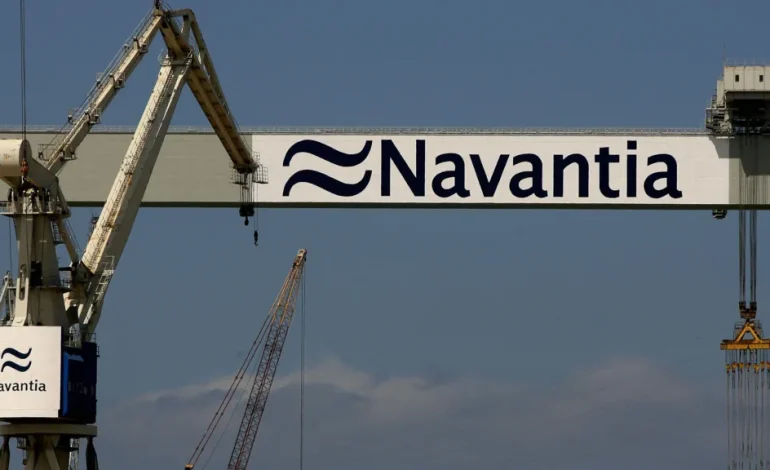Acquisition Safeguards 1,000 Jobs Across Four UK Shipyards and Bolsters Royal Navy Projects.
Harland & Wolff, the historic Belfast-based shipbuilder best known for constructing the Titanic, is set for a new chapter in its storied history after being acquired by Spain’s state-owned shipbuilding giant, Navantia.
The deal, which is still subject to regulatory approval, will secure around 1,000 jobs across the company’s four shipyards in Belfast, Scotland, and England.
The acquisition ends months of uncertainty for the shipbuilder, which fell into administration in September — its second such crisis in five years. Navantia’s intervention is seen as a lifeline for the company, whose survival is vital for the UK’s defence supply chain and shipbuilding capabilities.
Harland & Wolff’s four shipyards — in Belfast, Methil and Arnish in Scotland, and Appledore in England — play a key role in UK shipbuilding and defence. The acquisition is a significant boost for the Royal Navy, as Harland & Wolff is a subcontractor in a consortium, led by Navantia, responsible for building three Fleet Solid Support (FSS) ships. These vessels will be essential for the Royal Navy’s UK carrier strike group, supporting fleet operations with food, munitions, and other supplies.
“This deal is a major vote of confidence in the UK from Navantia, which will not only secure the future of UK shipbuilding but also protect 1,000 jobs across the country and bring future investment into shipbuilding right across the UK,” said Jonathan Reynolds, the UK’s Business and Trade Secretary.
While the financial terms of the deal were not fully disclosed, reports suggest that the purchase price for Harland & Wolff’s assets was around £70 million. Reynolds emphasized that the terms of the FSS contract with Navantia were only “minorly revised” to facilitate the deal, and he rejected claims that significant taxpayer support had been added to close the sale.
The deal comes at a crucial time as the UK seeks to “reset” its post-Brexit relationship with the European Union, with defence cooperation seen as a key pillar of this reset. By securing Harland & Wolff’s future, the UK ensures continuity in its defence supply chain, while Spain strengthens its position in the European defence sector.
Navantia, a major recipient of funding from the European Defence Fund, is already a lead partner in several pan-European defence projects. With its acquisition of Harland & Wolff, it gains a significant foothold in UK shipbuilding, enhancing its position to compete for future Royal Navy contracts, including the multi-role support ship programme.
For the UK, the deal represents a step toward ensuring “sovereign capability” in defence production. Defence Secretary John Healey welcomed the agreement, noting that it “keeps vital defence manufacturing in the UK” while also supporting skilled production jobs.
The acquisition has been widely welcomed by workers and unions. Harland & Wolff employs about 1,000 workers at its four shipyards, including around 500 at its iconic Belfast facility. The UK government had previously declined to offer direct financial support for the struggling company, leading to fears of mass job losses.
Hilary Benn, the UK’s Northern Ireland Secretary, hailed the deal as “a bright future ahead” for an “iconic, internationally renowned company with a long and proud history.” Local representatives also welcomed the deal. Gavin Robinson, the Democratic Unionist Party (DUP) MP for East Belfast, said the agreement “secures the future of jobs in Belfast and its other sites,” bringing relief to staff after months of anxiety.
“This side of the city would never be the same without Harland & Wolff,” said Harry Fisher, a former worker at the Belfast shipyard.
For many locals, the towering yellow cranes known as “Samson and Goliath” have become symbolic of Belfast’s industrial legacy and pride.
Founded in 1861, Harland & Wolff became one of the world’s leading shipbuilders in the early 20th century, most famously building the RMS Titanic. The company’s fortunes waned after World War II as global shipbuilding shifted to countries like South Korea and China.
In 2019, Harland & Wolff’s Norwegian owners pulled out, triggering a financial crisis that led to its first administration. It was rescued by Infrastrata, a London-based energy firm, but the company struggled under mounting financial pressures and high-interest loans.
This time, however, the rescue comes from a seasoned shipbuilder with financial backing from the Spanish government. Navantia’s experience and resources are expected to stabilize the company’s finances and pave the way for greater involvement in future UK defence contracts.
Although the acquisition has been widely praised, it still requires regulatory approval. The deal will be closely scrutinized to ensure compliance with competition and national security regulations. Industry observers expect the deal to go through smoothly, given the UK government’s visible support and the broader strategic importance of the shipyards.
Navantia has announced that it expects the purchase to be finalized by next month. Industry figures believe Navantia may use its newly acquired position to strengthen its bid for upcoming UK naval contracts, further embedding itself within the UK’s defence infrastructure.
The GMB and Unite unions, which represent workers at Harland & Wolff, have welcomed the deal but are pressing for more transparency about its financial details. Matt Roberts, the GMB national officer, said the union has a “verbal agreement” that all jobs will be protected and even increased as part of the acquisition.
The Hill, the Guardian, BBC, and the Financial Times contributed to this report.









